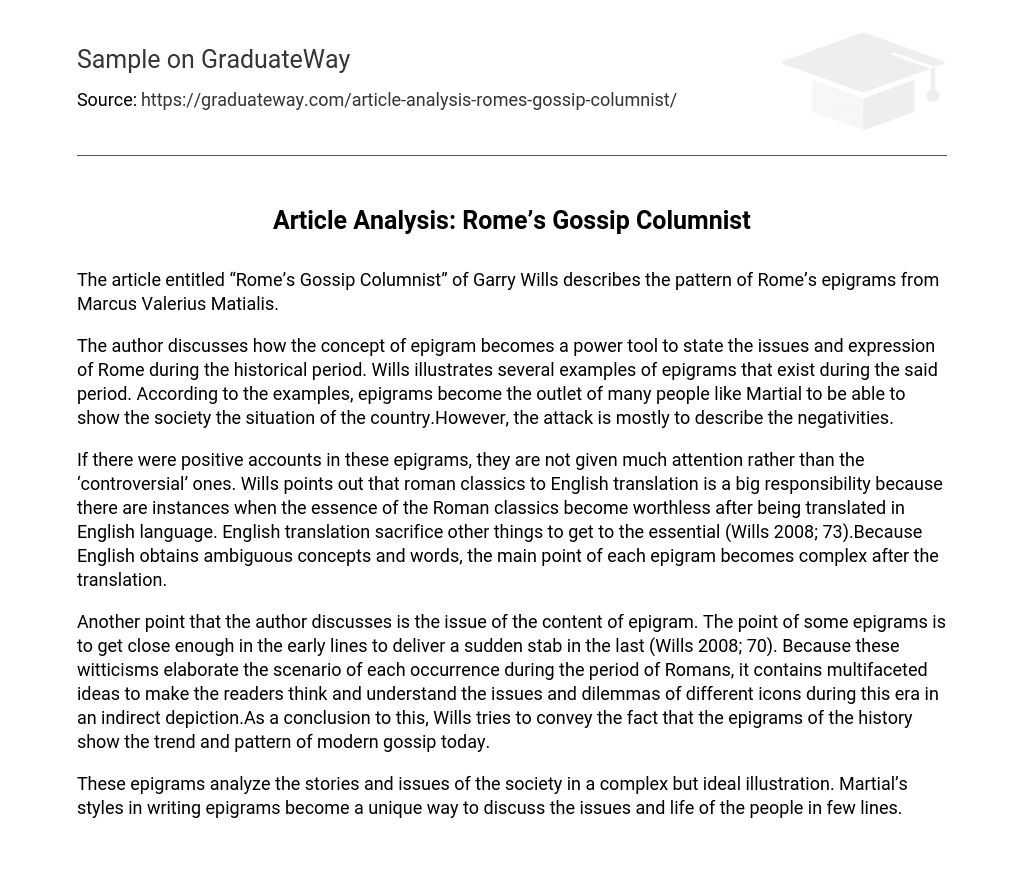The article entitled “Rome’s Gossip Columnist” of Garry Wills describes the pattern of Rome’s epigrams from Marcus Valerius Matialis.
The author discusses how the concept of epigram becomes a power tool to state the issues and expression of Rome during the historical period. Wills illustrates several examples of epigrams that exist during the said period. According to the examples, epigrams become the outlet of many people like Martial to be able to show the society the situation of the country.However, the attack is mostly to describe the negativities.
If there were positive accounts in these epigrams, they are not given much attention rather than the ‘controversial’ ones. Wills points out that roman classics to English translation is a big responsibility because there are instances when the essence of the Roman classics become worthless after being translated in English language. English translation sacrifice other things to get to the essential (Wills 2008; 73).Because English obtains ambiguous concepts and words, the main point of each epigram becomes complex after the translation.
Another point that the author discusses is the issue of the content of epigram. The point of some epigrams is to get close enough in the early lines to deliver a sudden stab in the last (Wills 2008; 70). Because these witticisms elaborate the scenario of each occurrence during the period of Romans, it contains multifaceted ideas to make the readers think and understand the issues and dilemmas of different icons during this era in an indirect depiction.As a conclusion to this, Wills tries to convey the fact that the epigrams of the history show the trend and pattern of modern gossip today.
These epigrams analyze the stories and issues of the society in a complex but ideal illustration. Martial’s styles in writing epigrams become a unique way to discuss the issues and life of the people in few lines.





